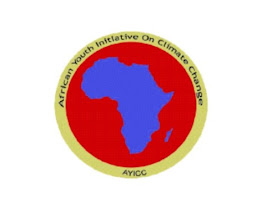International Student Conference on Climate Change, Indigenous Knowledge and Sustainable Livelihood: A South-South-North Dialogue
International Student Conference on Climate Change, Indigenous Knowledge and Sustainable Livelihood: A South-South-North Dialogue
Aug 28 2011 - Sep 1 2011, Johannesburg, South Africa
The world is currently facing a number of challenges including the adverse effects of climate change, expressed through global warming and changing rainfall patterns, drought, flood conditions, hurricanes, diseases, famine, and the depletion of bio-diversity. The adverse effects of climate change impact on communities regardless of race, gender, and social class across the globe. Besides aspects of food security and health being affected by climate change, human and social conflicts for resources, such as water and arable land, but also regional and continental migration are threats looming in the near future. It is on the basis of this increasing realization that as we realize that climate change is a global problem, it is also accepted that the search for sustainable solutions to mitigate against these effects requires the contributions of all sections of the global community in terms of both strategies and practical actions.
Developing countries face twofold challenges under changing climatic conditions. They have to counter the adverse effects of climate change, while at the same time often lagging behind in terms of agricultural productivity and hence food security. Yet, many developing countries have a lot to offer with regard to mitigation against the adverse effects of climate. In terms of mitigation – or the reduction of GHG emissions respectively – developing countries such as in Africa may be able to safeguard carbon sinks through sustainable agriculture and rangeland management. In terms of adaptation and risk-response, African local communities have for centuries developed various indigenous knowledge systems (IKS) of coping with climate change that would effectively contribute to the global pool on knowledge. These include knowledge of early warning systems, e.g. through the behaviours of living organisms, the monitoring of short term weather cycles, as well as long term experiences with climatic variability and the resulting livestock breeds, plant varieties, and resource management practices, such as mixed cropping practices, which involve the cultivation of different types of crops including root crops (cassava, sweet potatoes) on the same land the crops being harvested at different periods of the year, ensuring a maximum of food security throughout the year. Farmers’ choices on livestock rearing and cropping systems has most of the times been influences by their indigenous knowledge on climate variability and long-term adaptation measures.
The global scientific community has for a long time invested in research aimed at migrating and adapting to the adverse effects of climate change. However, in order to ensure that the knowledge and technologies developed through such efforts are successful and sustainably adopted, they need to be informed by existing indigenous means of adaptation. This would increase their acceptance in different communities and hence increasing their likelihood for success. It is obvious that African indigenous knowledge systems form one of the significant sources of locally accepted adaptation and mitigation measures and has a high potential for contributing to the continental and global body of knowledge. However, this can only be possible if such knowledge systems are properly documented, affirmed/validated and shared. Most of the valuable African IKS on climate change adaptation and mitigation has however not been properly documented to inform research and is informally woven into parts of the community. This jeopardizes its sustainability and reduces its potential to contribute to the global knowledge pool. It is however important that such knowledge is properly shared within the community for ensuring its sustainability and successful application.
Mainstreaming the young voices, in particular young scientists, of Africa and their perception in climate change adaptation and mitigation is key for the success of addressing climate change impact in Africa. Currently, a number of initiatives are being established in Africa aimed at increasing the participation of the youth in climate change issues. These include the African Youth Initiative on Climate Change (AYICC) and the African Youth Environment Network (AYEN). However, these youth groupings focus on the broader context of climate change and have not yet incorporated the role of research and development, and IKS in adaptation and mitigation. In addition there is minimal linkage between these climate change youth networks and young African scientists networks such as African Youth Forum for Science and Technology (AYFST) which leads to minimal linkage between S&T and climate change.
It is important that indigenous knowledge is properly shared with the youth for ensuring its sustainability and successful application. The youth have a high potential to mobilise communities where they live in and respond to climate change which is a challenge of their generation. It is of global interest to exchange and share these experiences and knowledge systems between IKS holders, scientists and students from both the developing and developed countries as part of their contribution to the global body of knowledge on adaptation and mitigation against climate change. In particular young scientists will have the task to lead research on climate change adaptation and mitigation, which will be a long term and certainly inter-generational process.
Copy pasted from NEPADs Site:

thanx for the updates(kitetoutreach.blogspot.com)
ReplyDeletei'm wondering what Korean student's role is on the climate change. thank you for good article. cheer up!
ReplyDeleteThanks for this article, this conference was very useful and an eye opener especially in issues of Indigenous Knowledge systems.
ReplyDelete